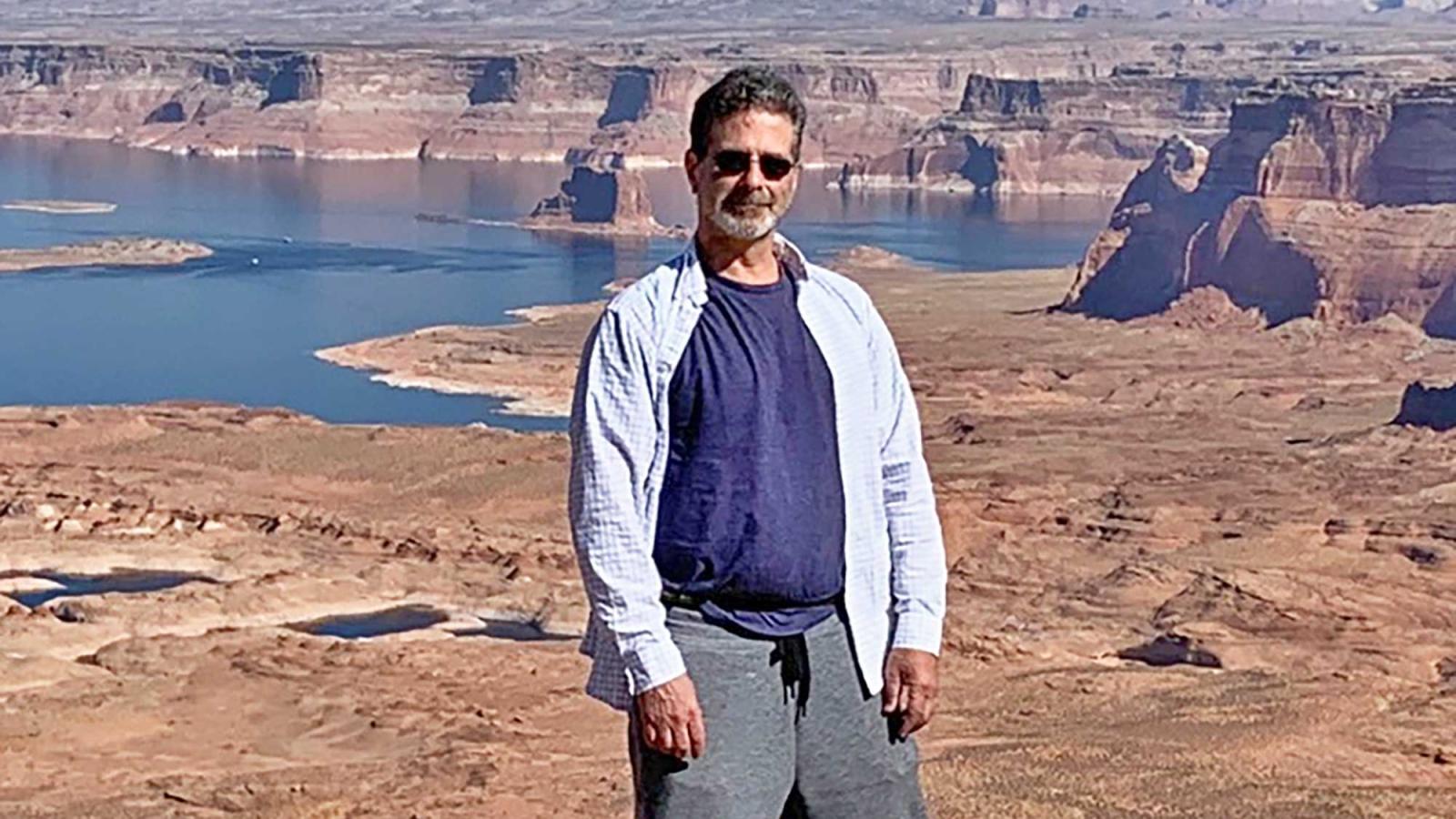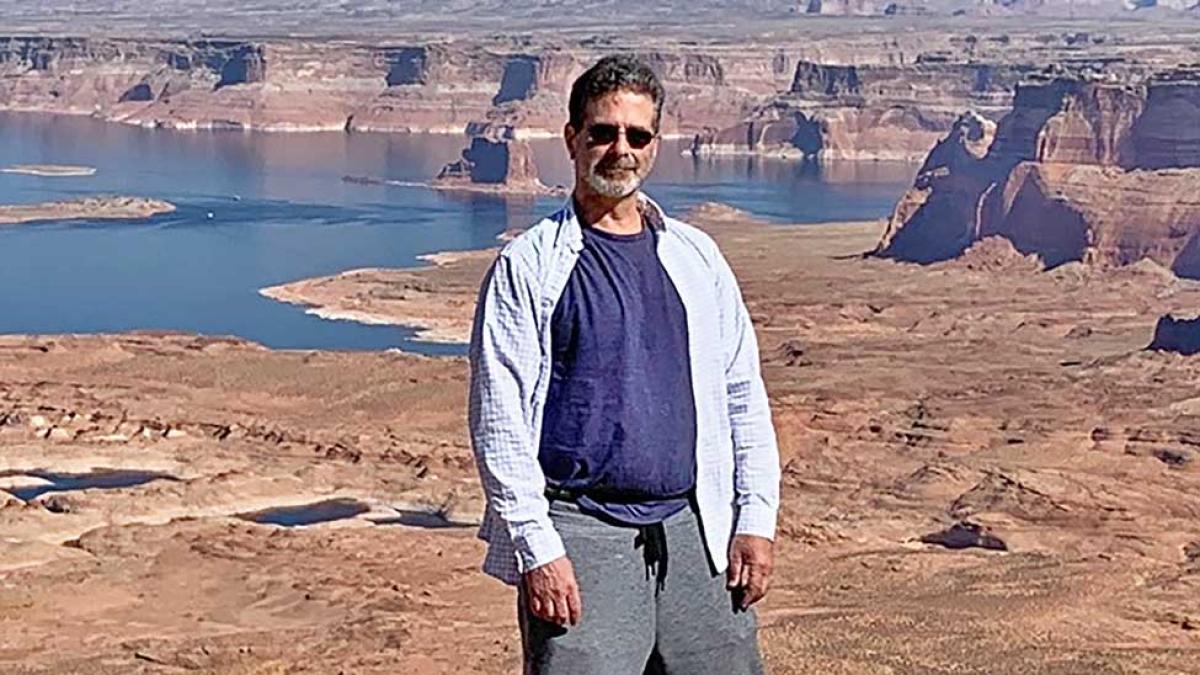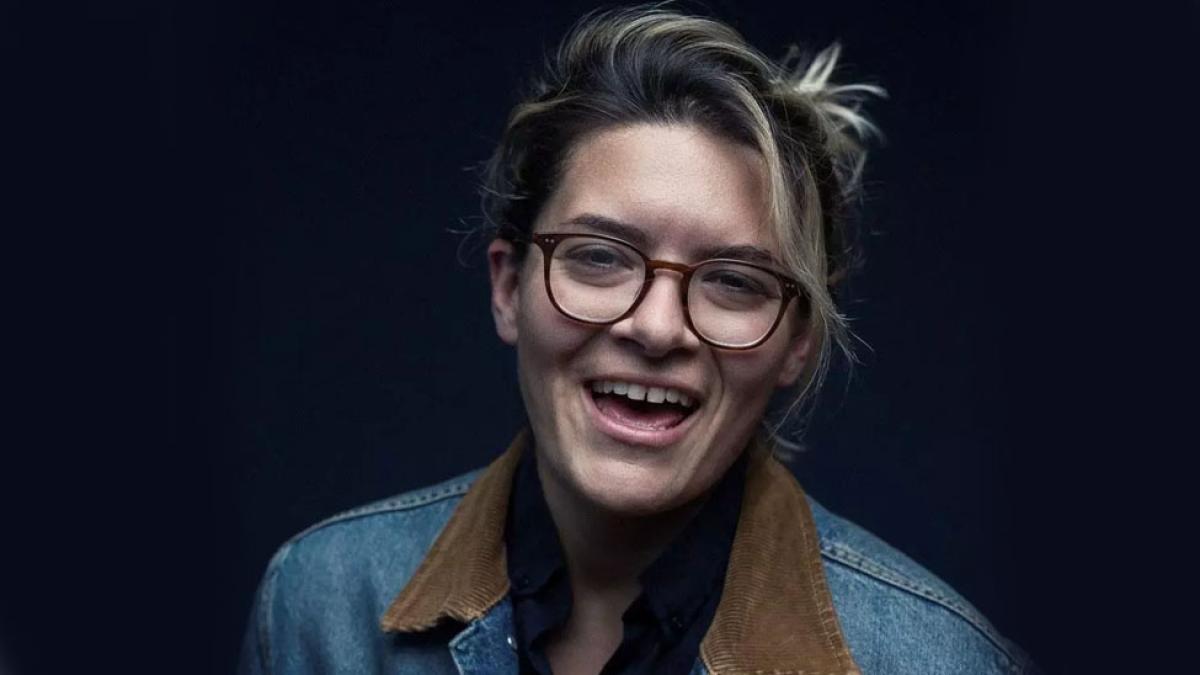
Faculty Focus: Professor David Cassuto
Professor David Cassuto has been a faculty member with the Elisabeth Haub School of Law at Pace University since 2003. But what you might not know about Professor Cassuto may surprise you -- learn more in this candid student-led interview.


Professor David Cassuto has been a faculty member with the Elisabeth Haub School of Law at Pace University since 2003. He teaches Animal Law, Environmental Survey, Constitutional Law, Property Law, Water Law, Comparative Environmental Law and Professional Responsibility, and is Director of the Brazil-American Institute for Law and Environment (BAILE). But what you might not know about Professor Cassuto may surprise you—learn more in this candid student-led interview.
Can you tell me about your recent work?
My current article focuses on the impact and plight of animals as victims of zoonotic disease. Zoonotic disease is caused in part by the close confinement of animals. The vaccines used for the spread of these diseases are then tested on animals. I’m arguing for changes in the regulatory structure, enforcement of treaties, and the inclusion of more effective treaty provisions. I’m also working with Professor Mushlin on a paper relating to the effects of solitary confinement on animals as well humans.
What inspired your interest and work in animal rights?
I came to animal law via environmental law. In undergrad, I biked across the amazon to raise money for an environmental cause. I saw deforestation and became a vegetarian to live by the rules I preached.
When I came to Haub Law, there was no animal law course being taught. Doing the research in order to teach animal law led me to realize this was more than environmental law. It’s ethics. It’s what legal rights, protections, etc. that animals have or should have. It’s a pressing civil rights issue. Billions of animals a year are tortured to death. I eventually gave up all animal products. Once one becomes interested in animal issues it’s hard to keep it just professional. I also started working with ALDF around that time. I was on the board and now do consulting.
I believe the purpose of the law is to protect the powerless. The powerful don’t need protection. If we look at who is genuinely powerless, animals have no voice. They have no legal voice. It’s difficult to know what happens to these innocent creatures and not want to help protect them as best I can. It is the support of the environmental program that has given me the ability to do this type of work. I feel very lucky to have the support of the institution.
What is your advice for students interested in animal rights?
It’s never been more urgent, wherever one's passion lies in trying to protect lives and living space, we need the help. Bring your passion to the job search and the job, and the jobs will be there.
I heard you’re an Elected Town Justice for a New York township?
Yes, I’ve been a Town Justice in my town since 2008. NYS town justices don’t need to be lawyers and that creates horrible situations, as justices can do things like send people to jail for up to a year and make decisions about what happens to people's property. People who have no business being judges are judges. They asked me to run for justice and I didn’t want to, I’m extremely introverted. However, I tell my kids to give back to their community and I didn’t want to be hypocritical. My mother was my campaign manager and I won on absentee ballots, so this was thanks to her work.
Is it true that you were behind the naming of Strawberry Fields in Central Park?
I was a high school intern at the NY City Council when John Lennon was shot and was completely grief stricken, like many others at the time. The city council person I worked for, Henry Stern, who became the parks commissioner, was open to doing something, and I advocated for the idea. An act of the city council was required. I wrote the bill and part of Sheep Meadow is now named Strawberry Fields.
How do you spend your free time?
I was a professional ski instructor for many years. I grew up skiing and love skiing. My son is moving to Idaho, so I’m optimistic that will mean great things for me. I also love being outside and live on 16 acres. My neighbors are bears and turkeys and that’s how I like it.
Gabriella Mickel authored this Q&A with Professor David Cassuto. Gabriella is a 2023 JD Candidate at Haub Law. She is a Land Use & Haub Scholar, the President of the Environmental Law Society, a Junior Associate on Pace Environmental Law Review, and on the E-Board for NLG, Lambda, and ACS. Outside of school, Gabriella owns three sports supplement stores and is the co-editor of the Law Student Corner section of the NYSBA EELS Journal.
What Gender Studies Is and How to Use the Degree
Mundy, an associate professor of English at Pace University in New York, suggests that some men avoid engaging in conversations about gender or worry that challenging gender norms will threaten their masculine identity. "So, no, gender studies and feminism are not based on this widely held but false belief that such work will be the 'end' of men or that men will somehow be 'replaced,'" he says. "The field is also expansive and ever-growing, though some might believe otherwise."
Britney Spears’ father blasted by legal expert after asking for access to her estate weeks after removal as conservator
Crawford, who teaches at the Elisabeth Haub School of Law at Pace University in New York and specializes in estate, trusts and taxes, said she's never seen that before. "It’s a continued example of Jamie meddling with his daughter's affairs," Crawford said. "He has no right to know how his daughter is using her money. It should be dismissed immediately. It’s outrageous.
NYC pays $17M in Queens cases amid unjust conviction fears
“The issue has been percolating for many years and is suddenly capturing public attention more than it ever has before,” said Bennett Gershman, a Pace University law professor who has studied prosecutorial misconduct for nearly 40 years.
This NYC university’s dance program landed 14 Rockettes on stage this year
Pace University's Rhonda Miller said she felt like a “proud mama” attending the opening night of the Rockettes' holiday program at Radio City Music Hall last month.
Boomers Are Preparing To Pass Wealth To Their Heirs—Here’s How Nonprofits Can Ready For An Unprecedented Generational Transfer
It’s the time of year when Americans tend to think about charitable giving. We’re moved by the spirit of the holiday season—and we also know we have to take care of tax planning before the end of the calendar year.
Alumni Profile: Hilary Leavitt ’10
A scrappy, working-class kid with big dreams manages to make it big in Hollywood with the help of some special mentors.

A scrappy, working-class kid with big dreams manages to make it big in Hollywood with the help of some special mentors.

It sounds like the logline for the next great coming-of-age drama, but for Hilary Leavitt ’10, it’s more like reality TV. Leavitt, who grew up in Brick, New Jersey, is now a successful producer with a growing list of credits that includes the award-winning television series Orphan Black and Ozark. She credits much of her professional achievement to the opportunities she received as a student at Pace University, double-majoring in Musical Theater and Film and Screen Studies.
“My career has been pretty charmed so far, and I hope to just continue learning and put myself in positions where I can actually help get good stories made from artists who have something to say,” Leavitt says.
Her love of theater, film, and television came about organically. As a kid, Leavitt spent a lot of time watching movies and television. She was never interested in performing, but she knew that she wanted a career in entertainment from an early age.
“I see myself as a facilitator of what other people are capable of doing,” Leavitt says.
At Pace, Leavitt pursued her dream with dogged determination. She learned how to tell a good story by pulling together the right resources and talent through effective collaboration and communication. With support and encouragement by faculty members including Associate Professor Amy Rogers Schwartzreich, head of the Musical Theater program, Leavitt directed her first University production “Tick, Tick, Boom!” as a sophomore. That experience, and even more so, the acting courses she was required to take, taught her an appreciation for the craft, and an empathy for performers.
After obtaining her degrees, Leavitt’s first big leap came about rather fortuitously. She was living in New York City and looking for any opportunity that would pay the rent, when she got a call about an opportunity at BBC America. Leavitt got the job just in time to avoid having to move back home to New Jersey, and as an assistant in the programming department she absorbed all that she could.
“[The job] ended up being this crash course in TV,” she says.
Later, when the network announced it was moving into creating original scripted content, Leavitt was one of the first to join a newly formed department tasked with carrying out the initiative. Programs that she helped bring to fruition include Orphan Black, London Spy, and The Last Kingdom.
After nearly five years, Leavitt was ready for a new challenge, and a change of scenery. In 2015, she moved to Los Angeles and took a position with the independent film and TV studio MRC, an opportunity that came to her through her former colleague and mentor, Erin Jontow.
“It’s a very filmmaker-driven studio, very hands-on and very entrepreneurial,” Leavitt says.
As MRC’s Vice President, Television, Leavitt further solidified her name in the industry through her instrumental role in developing programming such as the Emmy-winning Ozark (Netflix),, the upcoming Tony McNamara series The Great (for Hulu) and projects with creative talents including Damien Chazelle, Adam McKay, Jessie Nickson-Lopez, and Rob Eggers.
It was early in 2019, with those successes under her belt, when Leavitt decided to strike out on her own. Since then, she has established Blazer, a tv/film production company, and signed the deal to develop and produce new content for Hulu.
“It was … not necessarily ‘thought through,’ though I had spent the prior year preparing myself for the next phase of my career (both consciously and subconsciously),” Leavitt says. “The thing I learned [in] making the decision [was] to distinguish great opportunities from ‘right’ ones. Just because something sounds good, doesn't mean it's the right fit for you. It has to feel good, too.”
No matter where the future takes her, Leavitt will always have the skills and entrepreneurial spirit that she learned at Pace to lean on.
Pace University Receives NYS Economic State Development Grants for Nursing, Life Sciences
Pace University has been awarded two grants from New York State to upgrade science laboratory space and purchase equipment to help address a critical need for more clinical lab technicians and nurses in the region.

Funds through the NYS Regional Economic Development Councils will help renovate labs, update curricula, and create a pipeline of workers in healthcare and medtech.
Pace University has been awarded two grants from New York State to upgrade science laboratory space and purchase equipment to help address a critical need for more clinical lab technicians and nurses in the region.
The funds – totaling $145,000 – will help revitalize and upgrade existing science labs in Dyson Hall of Science on the Pleasantville campus ($100,000), and purchase equipment to expand the health care simulation lab on its New York City campus ($45,000).
The awards were first announced by Gov. Kathy Hochul and part of the New York Regional Economic Development Council Initiative, a competitive grant process that supported 97 priority projects throughout New York State with $81 million.
"The pandemic toll touched every corner of the state and every sector of New York's economy, and as a result we must ensure that our recovery does the same," Governor Hochul said. "As we move forward from the pandemic we are using the rolling grant process to build New York State back better by supporting shovel-ready projects with the potential to accelerate new investments and catalyze economic growth in every community."
“Pace has a long tradition of educating skilled and in-demand medical professionals like nurses, nurse practitioners, and clinical lab technicians,” said Marvin Krislov, president of Pace University. “The pandemic has been an all-too-important reminder of how important this pipeline is to the health and wellbeing of our communities. These new funds will enable the strategic capital investments that will prepare our students for productive careers in health care and the life sciences. We are grateful to New York State for this support.”
Earlier this year, Pace gained the support of the Hudson Valley and New York City Regional Economic Development Councils, which made recommendations to Gov. Hochul’s administration. As a result, Pace earned two of only eight grants awarded to colleges and universities throughout New York City and the Hudson Valley, and is investing in its campus and curriculum to train more nurses and lab technicians.
In particular, Pace is renovating nearly 1,800 square feet of existing lab space in Dyson Hall, updating curricula, strengthening internships, and adding state-of-the-art media equipment that supports multiple teaching and learning styles. The state funds complement dollars set aside for capital investments; the total cost of lab renovations is expected to be $900,000 and be completed in 2022.
The grant announcement comes at an integral time for Pace University. Earlier this year, Pace outlined its plans to transform Lienhard Hall, home to its College of Health Professions on the Pleasantville campus, into a Healthcare Hub with the help of $1 million in state funding that will add important programming for students preparing for careers in the region’s burgeoning healthcare and biotechnology sector. The university also received a $2 million grant from the federal government to increase opportunities and retention for historically underrepresented minorities in the field of nursing, which in recent years has been estimated that as many as 75,000 qualified students were turned away from undergraduate and graduate programs in the U.S. because of insufficient space, clinical sites, and faculty, according to an American Association of Colleges of Nursing’s report.
Provost Vanya Quiñones noted that these REDC grants will help increase Pace’s capacity to train more workers in these particular fields, and that the university is committed to increasing representation of underrepresented minorities, women, and veterans, which is consistent with its mission of “Opportunitas,” or creating opportunities for people.
“Partnering with the state on these projects is not only a win for Pace and its students by enabling us to provide experiential learning in nursing and life sciences, but it benefits communities as it will create a much-needed career pipeline into clinical laboratory science and health care professions,” Quiñones said. “This is a key investment that will pay dividends over time.”
About Pace University
Pace University has a proud history of preparing its diverse student body for a lifetime of professional success as a result of its unique program that combines rigorous academics and real-world experiences. Pace is ranked the #1 private, four-year college in the nation for upward economic mobility by Harvard University’s Opportunity Insights, evidence of the transformative education the University provides. From its beginnings as an accounting school in 1906, Pace has grown to three campuses, enrolling 13,000 students in bachelor’s, master’s, and doctoral programs in more than 150 majors and programs, across a range of disciplines: arts, sciences, business, health care, technology, law, education, and more. The university also has one of the most competitive performing arts programs in the country. Pace has a signature, newly renovated campus in New York City, located in the heart of vibrant Lower Manhattan, next to Wall Street and City Hall, and two campuses in Westchester County, New York: a 200-acre picturesque Pleasantville Campus and the Elisabeth Haub School of Law in White Plains. Follow us on Twitter or on the Pace News website.
About Dyson College of Arts and Sciences
Pace University’s liberal arts college, Dyson College, offers more than 50 programs, spanning the arts and humanities, natural sciences, social sciences, and pre-professional programs (including pre-medicine, pre-veterinary, and pre-law), as well as many courses that fulfill core curriculum requirements. The College offers access to numerous opportunities for internships, cooperative education and other hands-on learning experiences that complement in-class learning in preparing graduates for career and graduate/professional education choices.
About the College of Health Professions
Established in 2010, the College of Health Professions at Pace University offers a broad range of programs at the bachelor, master, and doctoral levels. It is the College’s goal to create innovative and complex programs that reflect the changing landscape of the health care system. These programs are designed to prepare graduates for impactful careers in health care practice, health-related research, or as educators, and equip graduates to work in health policy and global health fields. Students in clinical programs receive hands-on training in the College’s interprofessional Center for Excellence in Healthcare Simulation and have the opportunity to apply their developing skills in real-world settings at many of the regions' leading clinical facilities. The College is currently comprised of several growing and important areas of study, which include the Lienhard School of Nursing with Nursing programs from undergraduate through doctorate, Physician Assistant, Communication Sciences and Disorders, Nutrition and Dietetics, Occupational Therapy, and Health Science. Our vision is to be recognized for our innovative leadership in education, practice, scholarship, and service to improve health and the health professions. Our mission is to educate and challenge diverse students for the health professions to be leaders, innovators and lifelong learners who will positively impact local, national, and global health. For more information, please visit the College of Health Professions website.
Interdisciplinary Team of Students Collaborate to Develop Real-World Solutions in Haub Law’s First Access to Justice Lab
The Elisabeth Haub School of Law at Pace University’s new Access to Justice (A2J) Lab brought together students from across Pace University to apply human-centered design-thinking and legal training to create an innovative technology tool to address a real-world gap in access to justice.
The Elisabeth Haub School of Law at Pace University’s new Access to Justice (A2J) Lab brought together students from across Pace University to apply human-centered design-thinking and legal training to create an innovative technology tool to address a real-world gap in access to justice. Six second and third year Haub Law students, Lili Caparosa, Dagmar Cornejo, Pamela Guerrero, Daniel Guarracino, Gabriella Mickel, and Nina Rodriguez, joined five graduate students and one undergraduate student from Seidenberg School of Computer Science and Information Systems to collaborate in the unique, immersive, and interdisciplinary course offered for the first time this semester.
The A2J Lab course is a key component of Haub Law’s new Pace Access to Justice Project, which aims to direct the combined legal knowledge, skill and energy among Pace faculty, staff and students to close gaps in access to justice in our communities. Led by Professor Elyse Diamond, Director of the Public Interest Law Center, and Seidenberg Clinical Professor Andreea Cotoranu, Director of the NYC Design Factory, the course challenged students to help low-income Westchester tenants facing serious rental apartment habitability issues, and guided students through the research and development of a technology application prototype to empower tenants.
“We tasked students to learn about the complex legal and social systems that impact tenants in Westchester facing health, safety, environmental, and livability issues by engaging directly with community stakeholders, and to identify truly practical solutions,” said Professor Diamond. “Multiple factors including limited affordable rental housing, multi-step and de-centralized complaint processes that vary by local municipality, and eviction fear, lead many Westchester tenants to feel helpless to address even serious health and safety issues in their apartments. Through user personas, stakeholder interviews, outside research, and synthesizing exercises, our team explored where in the process a technology tool could benefit tenants and their advocates and encourage helpful legal and policy solutions.”
During the design process discovery phase, the law students and undergraduate student researched applicable legal information, statistics, and stories, to help them understand this real-world A2J issue. “We learned that the housing stock in Westchester is old and unaffordable, forcing low-income tenants who do not have enough housing options or income to be selective, to take or remain in housing even if it is unsafe,” said Gabriella Mickel, a 2L student participant.
According to the Westchester County Housing Needs Assessment, “Over 70% of the housing stock is nearly 50 years old, which strongly suggests a high number of homes are in need of major rehabilitation” and over 11,000 affordable housing units are needed.
Students also interviewed community and legal housing advocates, including Mount Vernon United Tenants Executive Director, Dennis Hanratty; Westchester Residential Opportunities, Inc. Executive Director, Marlene Zarfes and Deputy Director, Andrew Smith; and Legal Services of the Hudson Valley’s Pro Bono Director, Christopher Oldi, Esq., Litigation Director, Marcie Kobak, and Intake Director, Shira Galinsky, Esq. These stakeholders helped students to understand the relevant legal processes, but also highlighted how impactful A2J technology could be. “One of the goals is just empowering people; most people don't believe they have much power,” said Dennis Hanratty.
After synthesizing information from the research phase, the law students, now joined by the graduate team from Seidenberg, spent several weeks developing a prototype for a website application meant to help address the power imbalance between tenants and landlords in Westchester. The tool, available in English and Spanish, was designed to allow mobile users to learn their rights and to record and track habitability issues in one easy-to-navigate place. It includes a resources section, a record-keeping feature with document generation and a checklist, data analytics to collect anonymous information that can be used for advocacy efforts, and a forum with private messaging. The Lab culminated in a team presentation and prototype demonstration to select stakeholders and faculty. Students came away from the experience with a deeper understanding about the barriers facing lower income tenants and how to help them navigate local legal and related processes. The inaugural A2J Lab class hopes to secure funding for the web app through private funders or competitions, to make this solution available to the public.
“The A2J Lab was a very informative, hands-on experience that challenged me to thoroughly understand the individual that I want to help, rather than rely on my prior assumptions,” said Pamela Guerrero, a 2L participant.
Haub Law Dean Horace Anderson attended the final presentation along with Seidenberg Dean Jonathan Hill who were both impressed by the outcome of the course.
“It’s amazing to see our vision for our A2J programs coming to fruition,” said Dean Anderson. “The new A2J Lab along with the complementary A2J Seminar are uniquely providing our students with the critical skills needed by lawyers today to identify, diagnose, and address access issues using tools and knowledge from multiple disciplines. These academic experiences, combined with practical training through our partnerships with Westchester County courts, the New York State Judicial Institute and other community partners will lay the groundwork for students to make an impact in racial and social justice reform.”
Maxwell’s defense seeks difficult balance in attacking accusers
As the Ghislaine Maxwell trial heats up, the defense is facing the difficult task of cross-examining the women cited as victims. Haub Law Prof. Bennett Gershman, called attacking the accusers a “huge risk,” in an interview with KELO News.